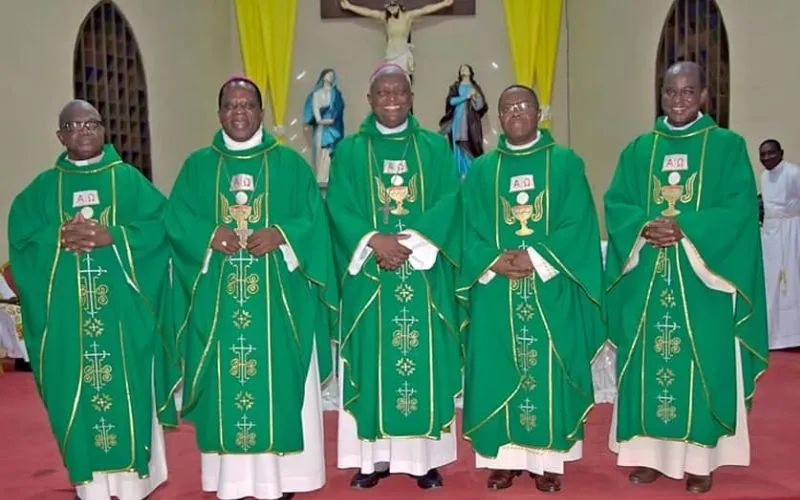
Fr. Anaehobi said that in no time, some Catholic Priests started imitating their way of preaching, shouting while preaching, and dancing even in sections of the Liturgy where they are not permitted to dance.
Other Priests, Fr. Anaehobi said, started saying they had powers to cast out the devil, to heal and to pray against the works of “enemies.”
“This became the birth of private ministries in the Catholic Church,” the Secretary General of RECOWA told ACI Africa, and added, “For a while now, Catholic Bishops have been crying out against these abhorrent abuses.”
He said that the problem comes when money is involved, and when Catholic Priests start engaging in practices that are not Catholic, like selling of oil and bringing their traditional practices into the Catholic Liturgy.
(Story continues below)
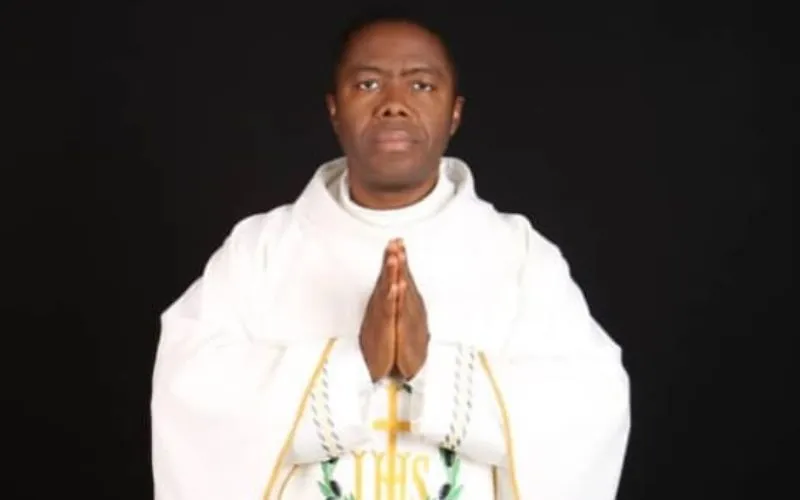
According to Fr. Anaehobi, some of the Priests involved hold their ministries on Sundays, denying the faithful the opportunity to go for the acceptable Eucharistic celebration.
“Because they claim to have powers to heal and to make people rich, Catholics prefer to go there on Sundays rather than come to Mass,” he said, and continued, “I know of Priests who hold night vigils on Saturdays and end with Holy Mass. Catholics from surrounding parishes attend the night vigils that go late into the night and when you go to the parishes on Sunday morning, you find very few people there.”
He decried the rise of self-acclaimed “men of God”, even among members of the Clergy, who seek to enrich themselves. “That is why it is these pastors and Priests who own private jets and mansions in Nigeria. And they know that the more the crowds they attract, the more the power they wield, and the more the money they collect.”
“I know of a private ministry which was closed down in a particular Catholic Diocese here when the Bishop issued a directive requiring that all the money collected in that particular ministry be given to the Diocese. That alone was enough to shut the ministry down,” Fr. Anaehobi said.
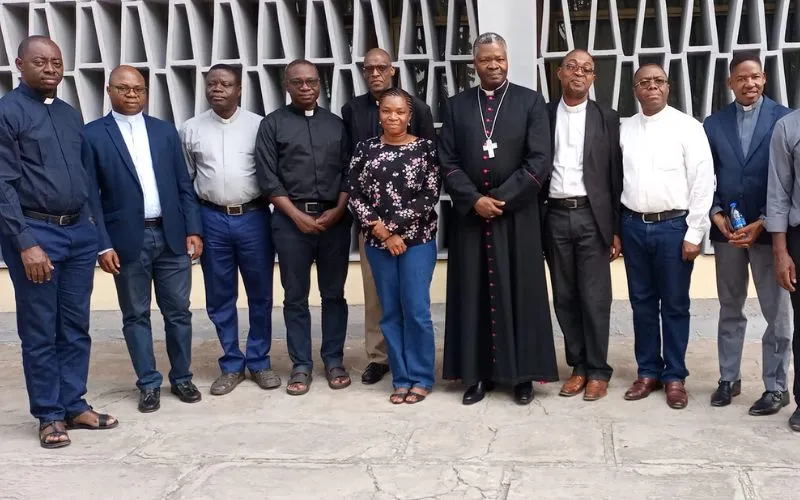
He added, “What most of these private ministries are interested in is money. That is why they even go out selling oil. When you remove the monetary incentive, all the Priests will go back to doing the right thing.”
Apart from the desire to enrich themselves, the self-acclaimed ‘men of God’ are in pursuit of fame, Fr. Anaehobi told ACI Africa in the September 3 interview.
According to Bishop Badejo, the statements that the Catholic Bishops’ Conference of Nigeria (CBCN) issued recently, condemning Liturgical abuses and decrying the proliferation of private ministries in Nigeria, is a reiteration of what the Catholic Church leaders have previously faulted.
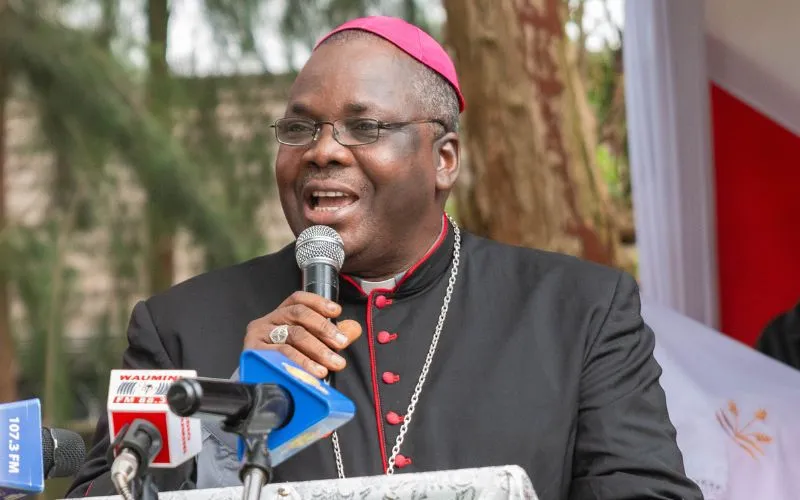 Bishop Emmanuel Adetoyese Badejo of Nigeria’s Catholic Diocese of Oyo
Bishop Emmanuel Adetoyese Badejo of Nigeria’s Catholic Diocese of Oyo
“We have been issuing internal memos at the level of Dioceses, provinces, even at the national conference to call to attention the misuse of symbols and activities of the Church,” he said in his Wednesday, September 4 interview with ACI Africa.
He said the “atmosphere of quick solutions to deep-seated problems” that he said had been generated by new technologies and social media where people claim they can provide instant answers to complex life problems was also affecting the Church.
“The same people who indulge in these activities are the ones who come to the Church,” the President of the Pan African Episcopal Committee for Social Communications (CEPACS), an entity of the Symposium of Episcopal Conferences of Africa and Madagascar (SECAM), said.
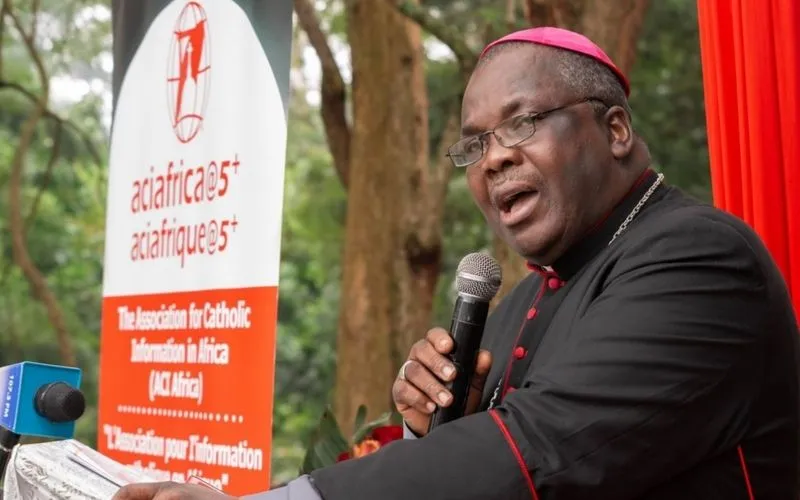
Highlighting poverty and ignorance as some of the reasons why Catholics are easily influenced by the “prosperity gospel”, Bishop Badejo said, “Where there is poverty, and want and lack, people tend to look for solutions in every possible way. Where there is disease, people are more vulnerable believing any form of solution that is offered. All these coupled with the relative ignorance and lack of education of many of our people fuels this problem.”
He expressed concern that members of the Clergy, who are expected to be the gatekeepers, ensuring that certain foreign practices do not find their way into the Church, are the ones who end up exploiting the people.
According to Bishop Badejo, people are also being increasingly attracted by things they feel are “different”.
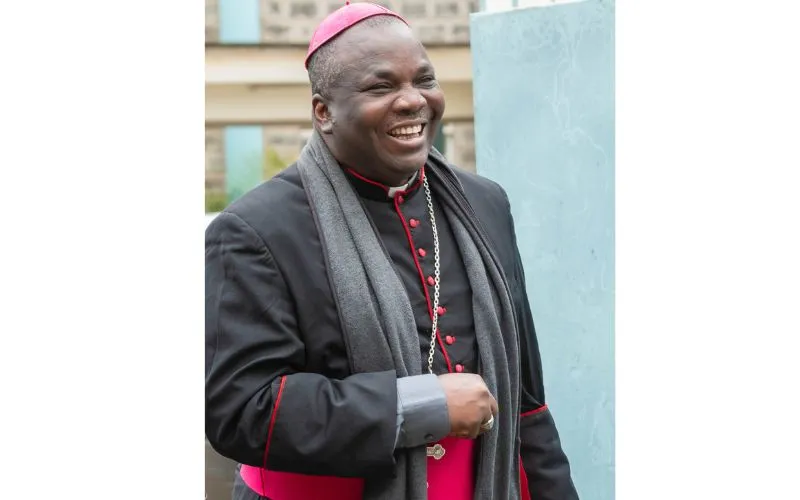
“When someone does something exotic, they tend to attract masses,” the Bishop of Oyo said. “We live in the culture of spectacle,” he observed, and explained, “Something that people feel is different and exciting, one they can get sentimentally attached to attracts crowds. Where there is a crowd, there is power. When you have crowds, you can acquire money from people who feel infatuated by what they are being offered.”
In another interview with ACI Africa, Archbishop Kaigama said the ongoing developments in Nigeria are concerning. He decried what he described as the rise of a “personality cult” in the country.
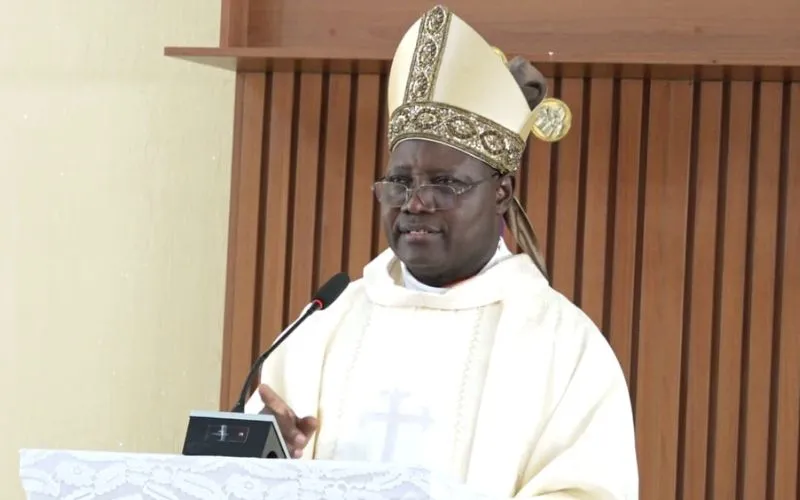 Archbishop Ignatius Ayau Kaigama of Nigeria’s Catholic Archdiocese of Abuja. Credit: ACI Africa
Archbishop Ignatius Ayau Kaigama of Nigeria’s Catholic Archdiocese of Abuja. Credit: ACI Africa
“We are very concerned about these developments,” Archbishop Kaigama said in the Thursday, September 5 interview with ACI Africa, and added, “That is why we devoted a large amount of time during our just ended conference to talk about abuse in Liturgy and the various strange practices that don’t align with our Catholic faith and identity.”
He reiterated the sentiments of other Church leaders in Nigeria, about the high influence of Pentecostal Churches on the Catholic Church in the country.
Archbishop Kaigama spoke about the nature of Pentecostalism in Nigeria, saying, “Someone wakes up one day and ordains themselves a Bishop, an Archbishop. Now we even have Eminences in those ministries.”
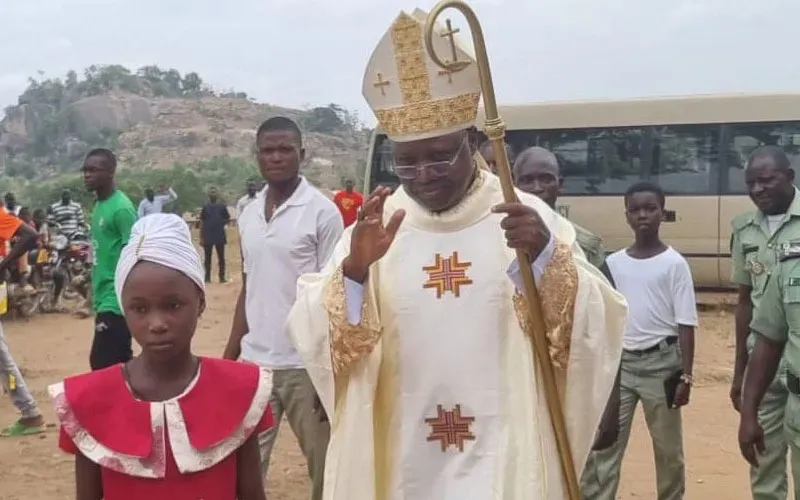 Archbishop Ignatius Ayau Kaigama at St. Mulumba’s Parish in Igu, Bwari Area Council of Abuja. Credit: Abuja Archdiocese
Archbishop Ignatius Ayau Kaigama at St. Mulumba’s Parish in Igu, Bwari Area Council of Abuja. Credit: Abuja Archdiocese
Some of the mushrooming sects in Nigeria, he went on to say, “have very heretical interpretations of the Bible.”
“We have also noticed the personality cult where everyone is attracting people around them for publicity and to enrich themselves. There is jamboree where pastors do anything to attract the masses,” the Nigerian Catholic Archbishop said.
He faulted Catholic Priests who he said had jumped on the bandwagon of prosperity, and are establishing ministries where they are in charge.
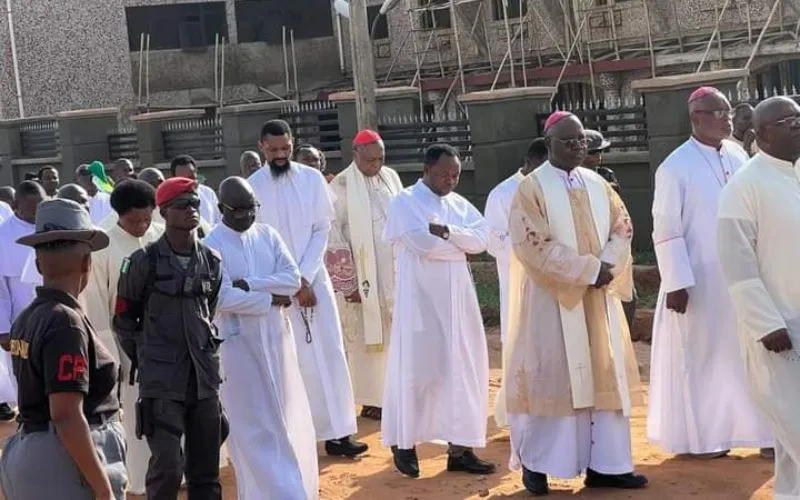 Archbishop Ignatius Kaigama of Nigeria's Catholic Archdiocese of Abuja d. Credit: Catholic Archdiocese of Abuja
Archbishop Ignatius Kaigama of Nigeria's Catholic Archdiocese of Abuja d. Credit: Catholic Archdiocese of Abuja
In these ministries, the Priests “project their personalities, instead of Christ,” the vocal Archbishop of Abuja said, adding that lay people are also getting involved.
In these ministries falsely linked to the Catholic Church, lay people claim to have divine appearances such as that of the Blessed Virgin Mary, and say they have extraordinary gifts such as healing. This, he said, they do to attract masses.
Unfortunately, most attempts by Local Ordinaries to address the menace of private ministries linking themselves to the Catholic Church have only been met with hostility.
“The people get so engrossed with these personalities that they are even ready to resist the Bishops’ interventions,” Archbishop Kaigama told ACI Africa in the September 5 interview.
He recalled the 2021 case Fr. Ejike Mbaka, saying, “I know of the case of the Catholic Diocese Enugu where the Bishop put a sanction on a Priest for a particular reason. The people got so angry that they went to attack the Bishop’s house and the Cathedral.”
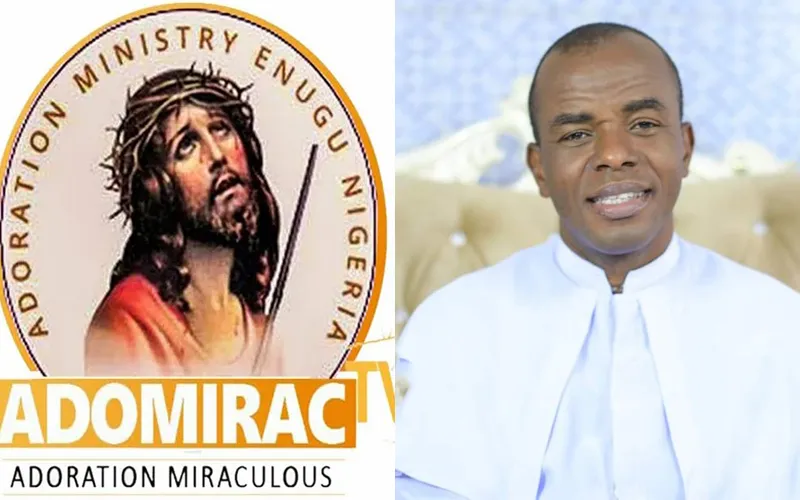 Fr. Camillus Ejike Mbaka, Spiritual Director of the Adoration Ministry in Nigeria's Enugu Diocese
Fr. Camillus Ejike Mbaka, Spiritual Director of the Adoration Ministry in Nigeria's Enugu Diocese
The Archbishop of Abuja lamented that with private ministries, people are not being led in the spirit of the Catholic Church.
“A Catholic would not go and destroy anything that belongs to the Church. But because these people are formed to give their allegiance and loyalty to a certain individual, they don’t even see Bishops as their overall pastoral leaders in the Diocese,” he said.
Archbishop Kaigama continued, “There are also some powerful people who believe they have received spiritual benefits from these Priests. When the Bishop speaks out in such circumstances, they feel that either the Bishop is jealous of the people or he doesn’t like the Priest.”
Archbishop Kaigama said that where there is good governance that alleviates poverty and creates employment for young people, the people who call themselves “powerful men of God” will not have work to do.
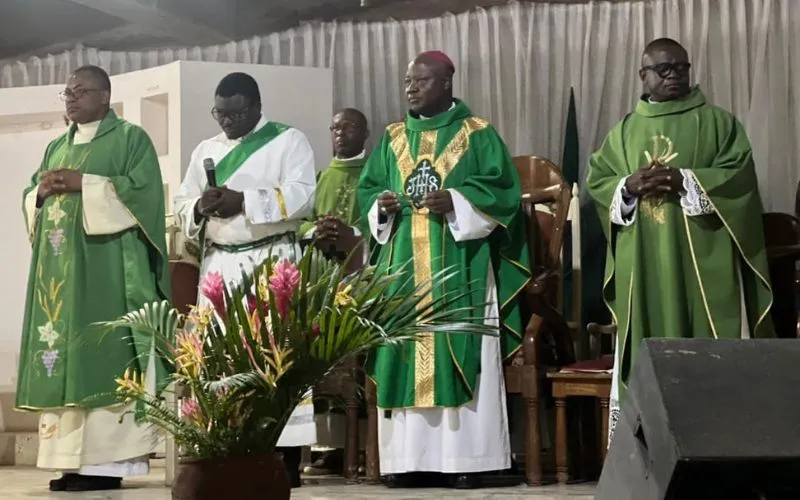
“This is a honeymoon for them because the people are drifting away due to hunger and poverty. There will, however, come a time when things will be okay for everybody and the ‘men of God’ will not have any customers,” he said.
He said that despite the warring developments, the Catholic Church in Nigeria remains firm.
“We are not afraid. No matter the ridicule, abuses and insults we suffered, we are determined to keep going. By the grace of God, we shall win the day,” the Local Ordinary of Abuja, who started his Episcopal Ministry in April 1995 as Bishop of Nigeria's Jalingo Diocese said.
He said the Catholic Church in Nigeria has a vibrant laity, who are ready to volunteer their time and resources to promote the true Catholic identity.
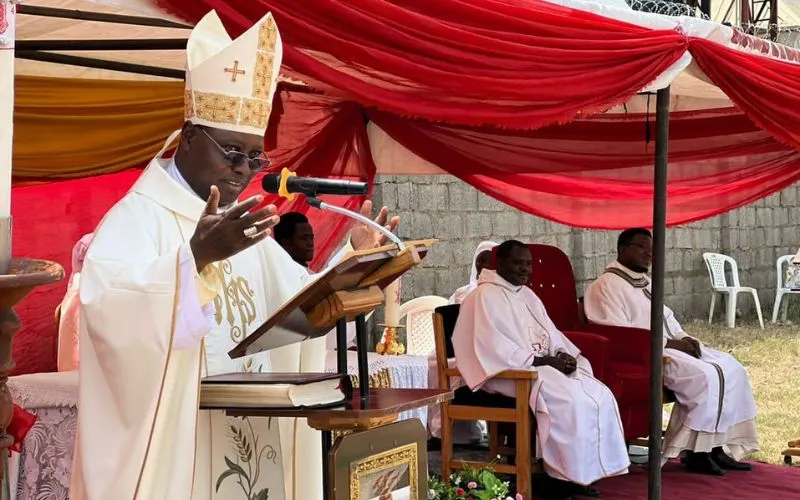
In his message of solidarity with the people of God, who he said are undergoing immense suffering in the West African country, Archbishop Kaigama said, “We must remain God-centered, focused and rooted in our faith.”
“We must not deviate because of problems of hunger, poverty, insecurity, lack of jobs, rampant corruption. Many things are frustrating the people at the moment. But we believe in a better Nigeria,” he said, and added, “There is a consciousness that is rising. I believe that there will be a spiritual and social revolution that will help us to get it right.”
In the September 3 interview, Fr. Anaehobi reiterated Archbishop Kaigama’s sentiments, noting that the Church in Nigeria “remains unswayed” amid various threats since it offers “what no one else can offer”.
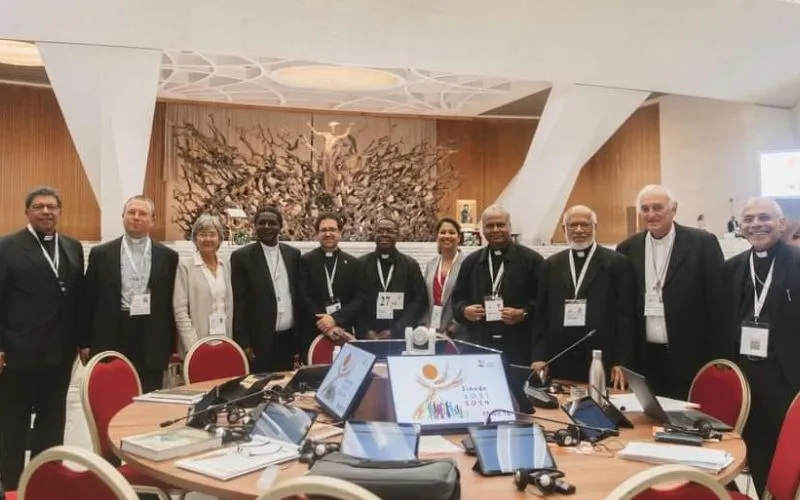
“We know that when some of our Catholics face difficulties, they go to these places in search of instant solutions to their problems, but they always come back to the Church whenever they realize that they were only given empty promises. These are situations we can’t control, and we can’t achieve anything by fearing. We can only look at them as opportunities to teach our Catholics to discern,” the Nigerian Catholic Priest said.
Amid the fight against Pentecostal influences, Catholic Bishops in Nigeria have the support of Catholics and non-Catholics alike, Bishop Badejo told ACI Africa, adding that in the West Africa country, the Catholic Church is seen as the model Church.
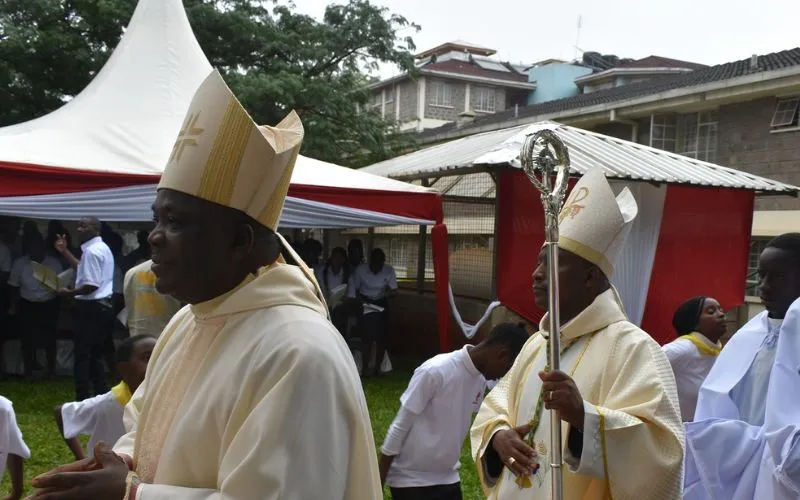
“We have received overwhelming support even from non-Catholics who, although not being Catholic, they look upon the Catholic Church as the model Church,” Bishop Badejo said.
He said that Catholic Priests have also expressed a firm commitment to weed out among themselves, those who are out to taint the image of the Catholic Church by seeking prosperity.
“At our last Bishops’ conference, we had a meeting with representatives of all the Priests in the country. The Priests themselves requested the Bishops to address this problem so that it doesn’t become a major issue in the life of the Church,” Bishop Badejo said, and added, “We have all the support we need to address the challenge.”
Agnes Aineah is a Kenyan journalist with a background in digital and newspaper reporting. She holds a Master of Arts in Digital Journalism from the Aga Khan University, Graduate School of Media and Communications and a Bachelor's Degree in Linguistics, Media and Communications from Kenya's Moi University. Agnes currently serves as a journalist for ACI Africa.



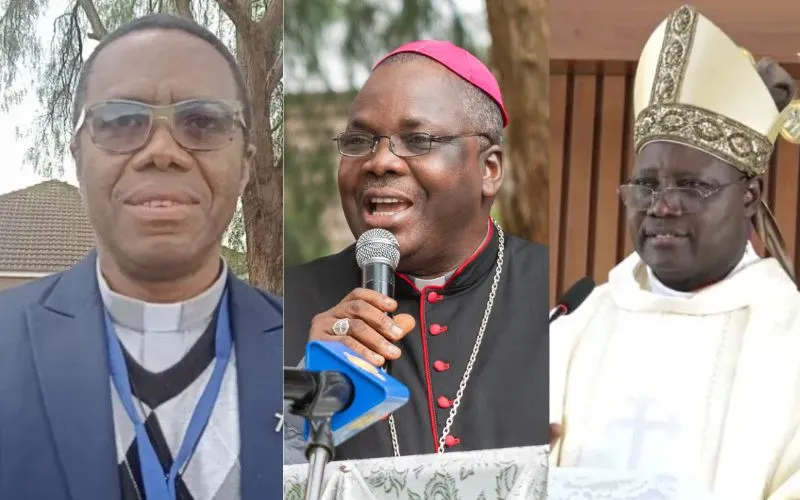
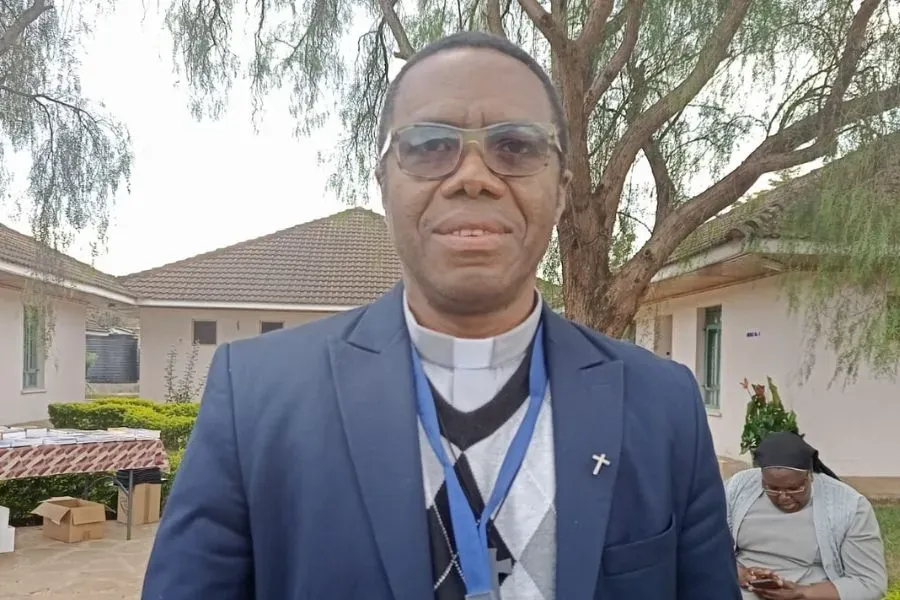 Fr. Vitalis Anaehobi, Secretary General of the Regional Episcopal Conference of West Africa (RECOWA)
Fr. Vitalis Anaehobi, Secretary General of the Regional Episcopal Conference of West Africa (RECOWA)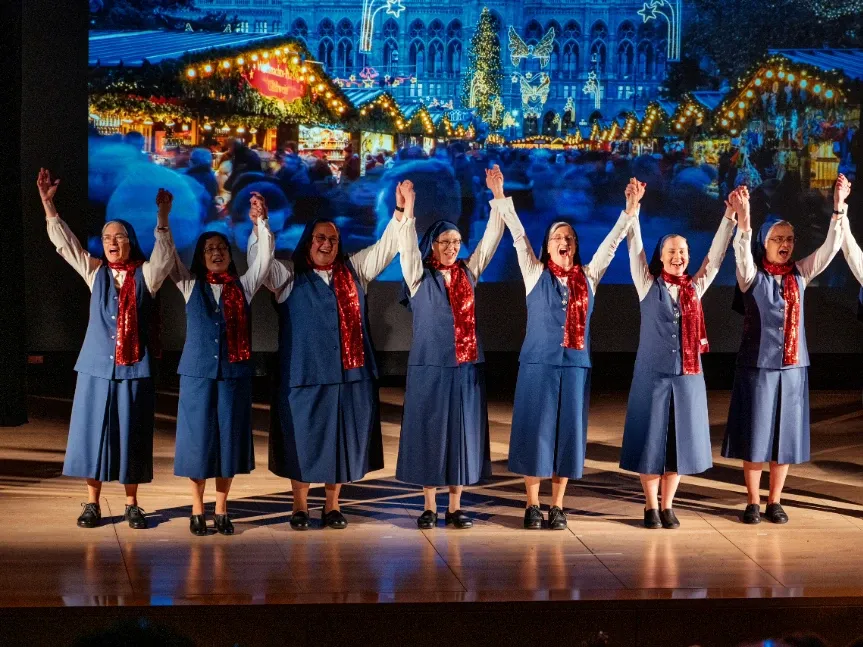
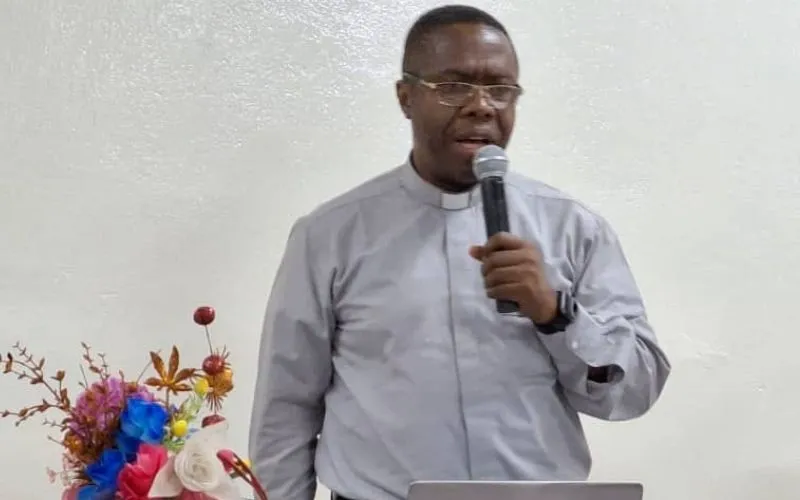



 Bishop Emmanuel Adetoyese Badejo of Nigeria’s Catholic Diocese of Oyo
Bishop Emmanuel Adetoyese Badejo of Nigeria’s Catholic Diocese of Oyo

 Archbishop Ignatius Ayau Kaigama of Nigeria’s Catholic Archdiocese of Abuja. Credit: ACI Africa
Archbishop Ignatius Ayau Kaigama of Nigeria’s Catholic Archdiocese of Abuja. Credit: ACI Africa Archbishop Ignatius Ayau Kaigama at St. Mulumba’s Parish in Igu, Bwari Area Council of Abuja. Credit: Abuja Archdiocese
Archbishop Ignatius Ayau Kaigama at St. Mulumba’s Parish in Igu, Bwari Area Council of Abuja. Credit: Abuja Archdiocese Archbishop Ignatius Kaigama of Nigeria's Catholic Archdiocese of Abuja d. Credit: Catholic Archdiocese of Abuja
Archbishop Ignatius Kaigama of Nigeria's Catholic Archdiocese of Abuja d. Credit: Catholic Archdiocese of Abuja Fr. Camillus Ejike Mbaka, Spiritual Director of the Adoration Ministry in Nigeria's Enugu Diocese
Fr. Camillus Ejike Mbaka, Spiritual Director of the Adoration Ministry in Nigeria's Enugu Diocese






